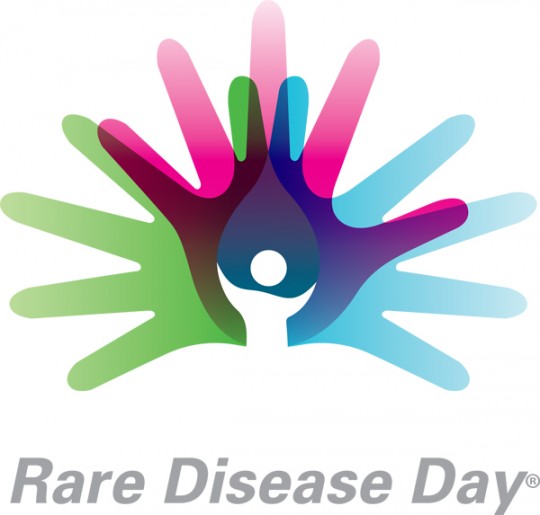An encephalitis journey: A dozen doctors and 2.5 years
An encephalitis journey: A dozen doctors and 2.5 years
We’re partnering with Inspire, a company that builds and manages online support communities for patients and caregivers, to launch a new series here on Scope. Once a month, patients affected by serious and often rare diseases will share their unique stories, and we’re publishing our first – written by Becky Dennis, a Plano, Texas woman who survived encephalitis – in honor of Rare Disease Day.

In February 2008, I traveled from the U.S. to Southeast Asia for business meetings. Five days later, I delivered a presentation, feeling confident and full of life. Two hours later, fatigue stung me, nearly paralyzing my speech. My vision blurred. My lips and limbs tingled, then fell numb. A company car raced me to the emergency room. Walking required so much effort that my body yielded to a wheelchair.
My mind raced for answers. Did I not acclimate? Did I forget a medication? Can I simply not keep the pace of my older colleagues?
Doctors’ and nurses’ words bounced in my head. I couldn’t remember how to talk. Fog settled in my brain, and my fear intensified. A cardiologist ran tests: borderline EKG. Within six hours, some faculties returned. Without conclusive tests, the doctor discharged me, citing fatigue and stress as the cause for my illness.
In the U.S. two weeks later, a neurologist diagnosed me for stroke. A series of MRIs and other tests returned insufficient evidence. He dismissed me, recommending psychotherapy. He offered no explanation for the constant headaches, tingling sensations, slurred speech, and short-term memory loss.
As a senior vice president for a publicly traded company, and someone who had always been an extremely independent person, I found myself struggling to retain the life I knew. Poor concentration plagued my work, and I needed five naps a day. Fatigue overwhelmed me to an extreme. I’d finish a conference call, and then my head would collapse on my desk in my home office because I was unable to take just 20 steps to my bedroom. My sister would call to see how I was doing, and she’d ask, “Did I wake you up?” at two o’clock in the afternoon. She’d say, “You were asleep the last time I called you. You’re going to get fired.”
Because of vision issues, I couldn’t even drive – let alone fly. My husband had to take me to business meetings, and I was no longer able to navigate the complexities of globetrotting. I felt helpless.
In the absence of a fitting diagnosis and the suggestion that stress caused my neurological phenomena, I fought to conceal my illness. I knew I wasn’t crazy. I didn’t cause these symptoms. Fear of another episode distracted me, making me feel like a time bomb. Months passed. Some doctors still thought stroke. Some thought complicated migraine. Some sided with the stress factor. The symptoms lingered. After 2.5 years and 12 doctors, I pushed for answers.
In May 2010, I visited Massachusetts General Hospital, presenting notes and tests from the previous 30 months to a neurologist. He examined each symptom, including loss of taste and smell, aphasia, and loss of peripheral vision. He concluded, “This is clearly encephalitis, likely from a mosquito bite.”
In that moment, I felt vindicated. Validated. My spirits lifted, knowing that this doctor looked closely enough to understand me. Such complex symptoms were not, could not, be stress.
I learned that encephalitis is acute inflammation of the brain, typically caused by a viral infection and resulting in acquired brain injury. (Familiar forms of encephalitis include the West Nile virus and herpes simplex encephalitis.) Compared to meningitis, which is swelling in the outer lining of the brain, encephalitis is inflammation of the brain itself and has a high mortality rate. I discovered that the mortality rate for the kind of encephalitis I contracted, Japanese Encephalitis, has a mortality rate of one in three. An alarming statistic.
Recovery is a long process for most patients, requiring rest to give the brain the opportunity to restore function. Rehabilitation for this illness is similar to stroke recovery, such as speech therapy, physical therapy, psychotherapy and cognitive therapy. I was in for a long journey.
Just a few weeks after getting my diagnosis, I started writing my book about encephalitis and my experience. I wanted people to understand that the cruelty of this disease is its silence: Though those of us who have survived appear to be functioning at 100 percent, the disease locks away our memories and prevents us from concentrating on what our friends and families are sharing with us. It is critical that swift diagnoses be made, and I consider it my mission in life to educate and bring about awareness in hopes of preventing others from going down the same path that I did.
Becky Dennis is a board member of Encephalitis Global, Inc., an international patient advocacy organization, and is finishing an upcoming book, titled “Cerebral Assault,” about her encephalitis journey. Dennis worked with Inspire to create a new online report on encephalitis, which can be downloaded from this site.
###
* Stanford University Medical Center integrates research, medical education and patient care at its three institutions – Stanford University School of Medicine, Stanford Hospital & Clinics and Lucile Packard Children’s Hospital.
** The above story is adapted from materials provided by Stanford University School of Medicine
________________________________________________________________




















